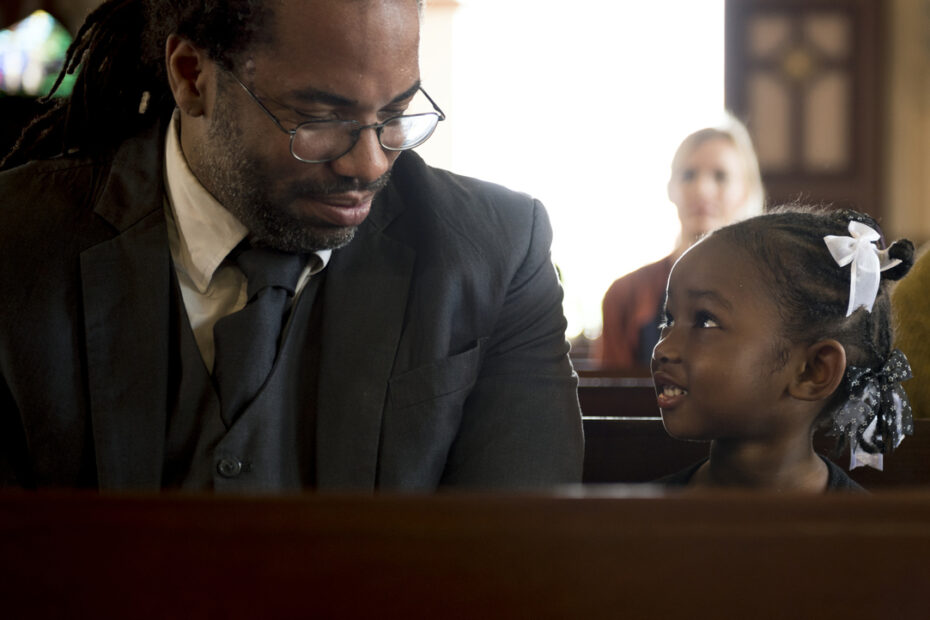For far too long, many of the great stories of Black history have gone untold. Black history month gives our churches a great opportunity to share these stories and help our congregations understand the broader story of Black history.
Whether your church is monocultural or multi-cultural, your congregation has an opportunity in the next few weeks to highlight black history in unique and compelling ways. Here are five ideas to get you started.
1. Bring Black history events into your sermons.
U.S. Black history is full of compelling stories that illustrate the biblical truth you’re sharing each week. You have enough great stories to share that you could fill an annual preaching calendar, much less a month. Black history month is a great place to start. The best way to get these stories is to make Black history a regular part of your reading habits. But here are a few stories to get you started in your research.
- The Underground Railroad – You probably know the basics. The underground railroad was a network of people and places that helped slaves go from slavery in the South to freedom in the North. It’s estimated that 100,000 slaves used this system to find their freedom in the first half of the 19th century. The stories of famous participants like Harriet Tubman make great illustrations, particularly if you’re preaching on biblical themes of freedom, redemption, hope, and courage. If you happen to live in an area of the country where the Underground Railroad was strong (such as Iowa, Indiana and Ohio), try to leverage local stories. It’ll take some digging, but a nearby librarian or museum curator can likely help.
- George Liele – The story of George Liele has often been overlooked when the great stories of American missionaries are told. Liele was born into slavery in Virginia and became a Christian in 1773. He started preaching to fellow slaves soon after his conversion. In 1978, his master, a British loyalist, set Liele free. To pay for the freedom of his wife and four children, Liele became an indentured servant on a Jamaican-bound ship. He soon repaid his debt and began preaching to the island’s slaves as a free person. A decade before William Carey left for India, Liele became the first Baptist missionary. In 2020, the Southern Baptist Convention recognized an annual George Liele Church Planting, Evangelism and Missions Day on the first Sunday of February. His story fits well within many sermon topics but particularly ones dealing with missions and evangelism.
- John Lewis & Bloody Sunday – March 7, 1965 was a turning point in the fight for civil rights in the United States. On that day, John Lewis and 600 others met for prayer at a downtown church. Then they walked through the streets of Selma, Alabama.
As they arrived at the Edmund Pettus Bridge on the way out of town, they met 150 Alabama state troopers, sheriff’s deputies, and posse men who told the demonstrators to disperse. Just 65 seconds after a two-minute warning was announced, the troopers attacked the demonstrators with clubs, bullwhips, and tear gas.
John Lewis, who later became a longtime Georgia congressman, suffered a skull fracture and was one of 58 demonstrators treated for their injuries at a local hospital. As the nation watched those events on their nightly news broadcasts, it became a catalyzing event for the passage of the Voting Rights Act of 1965.
Any sermon on courage, prayer, and social justice could benefit from the story of Bloody Sunday.
2. Hold a movie night with films on Black history.
Particularly in recent years many great films on Black history have made their way to theaters. Because so much of Black history is tied in the Black church, spiritual and moral themes play a powerful role in a number of them. Consider inviting your congregation for an evening viewing of the film and discussion afterward. You can set up the event in several ways. You could have lunch and host a matinee in the afternoon or eat dinner during the movie. Because it’s so important for people to engage with the topics the movies address, be sure to leave some time for discussion afterward.
Here are a few movies to consider. Note that some of them may have language and include images that may not be suitable for all ages. Be sure to check your favorite family movie guide for a full assessment.
- Selma – This 2014 movie tells the story addressed above about the events leading up to and including Bloody Sunday. The movie focused heavily on the relationship between Martin Luther King Jr. and President Lyndon Johnson, whose partnership helped to forge the Voting Rights Act a few months after the march.
- 12 Years a Slave – This critically acclaimed movie tells the story of Solomon Northup, a Black freeman who was kidnapped in 1841 and spent 12 years in slavery. The extreme brutality, based on the authentic experiences of slavery, can be tough to watch and shouldn’t be viewed by children. Still, for the right audience, it’s a powerful description of slavery.
- Hidden Figures – It’s fair to say that the contributions of Black mathematicians to the NASA space program of the 1960s was largely forgotten until the book and movie of this title was released. The movie tells the story of three Black mathematicians who made critical contributions to the space program, overcoming both racial and gender prejudice.
3. Sing black spirituals as part of your music time.
It’s hard to overestimate the power of the tradition of Black spirituals in U.S. history. According to the Library of Congress, a spiritual is a type of religious folk song associated with African people when they were enslaved in the American South. Music had been a key part of daily life for Africans before their enslavement. When they began to convert to Christianity in the 17th century, it was only natural that music became a key way they expressed their new faith.
The songs have expressed both rich theology and the deep sorrow that accompanied slave life. Share as much of this theology and history as you can to help your church understand what they’re singing. If possible, invite people with experience in this musical genre to help you lead this time. Here are a few songs to get you started in helping your church plan for Black History Month. Each song is linked to a page at the Library of Congress that includes a recording.
- “Nobody knows de trouble I’ve seen” – Maybe the most well-known of the Black spirituals. The song describes the difficult life that slaves and later Black Americans experienced. Yet the song comes to a crescendo in the last stanza: “Oh, nobody knows the trouble I’ve seen. Nobody knows but Jesus.” Legendary gospel singer Mahalia Jackson has an amazing rendition of this song that you might be able to use as part of your service.
- “Go Down Moses”– The song tells the story of Moses’ encounter with Pharaoh and his famous call to “Let my people go.” This particularly resonated with 19th-century Black slaves in the American South. Harriet Tubman used the song to signal to slaves that she was nearby and ready to help them escape.
- “Oh Jonah” – Of course, the song describes Jonah’s reluctant missionary journey. It’s a powerful and fun song with a strong biblical message.
If possible, do more than sing these songs during your worship service. Explain how the song, and other Black spirituals like it, played a part in Black history.
4. Interview older Black citizens in your church or community.
Your church or community has people who experienced some of the historical moments of the fight for civil rights over the last 75 years. Invite them to tell their stories during your worship service. Not only does it help your church understand their experiences better, but the experience sharing will often bless the interviewee.
Provide a list of questions beforehand so you don’t put anyone on the spot. Be sure to promote the special worship service a few weeks ahead of time. Send a note to local media to help you get the word out beyond your church.
Remember, February is a great time to focus your church’s attention on Black history. But it doesn’t need to be isolated to just one month. Look for ways you can tell the story throughout the year.
During Black History Month, ACST is proud to celebrate the achievements of African American ministers. We’re pleased and honored to recognize their role within the African American Christian experience.




